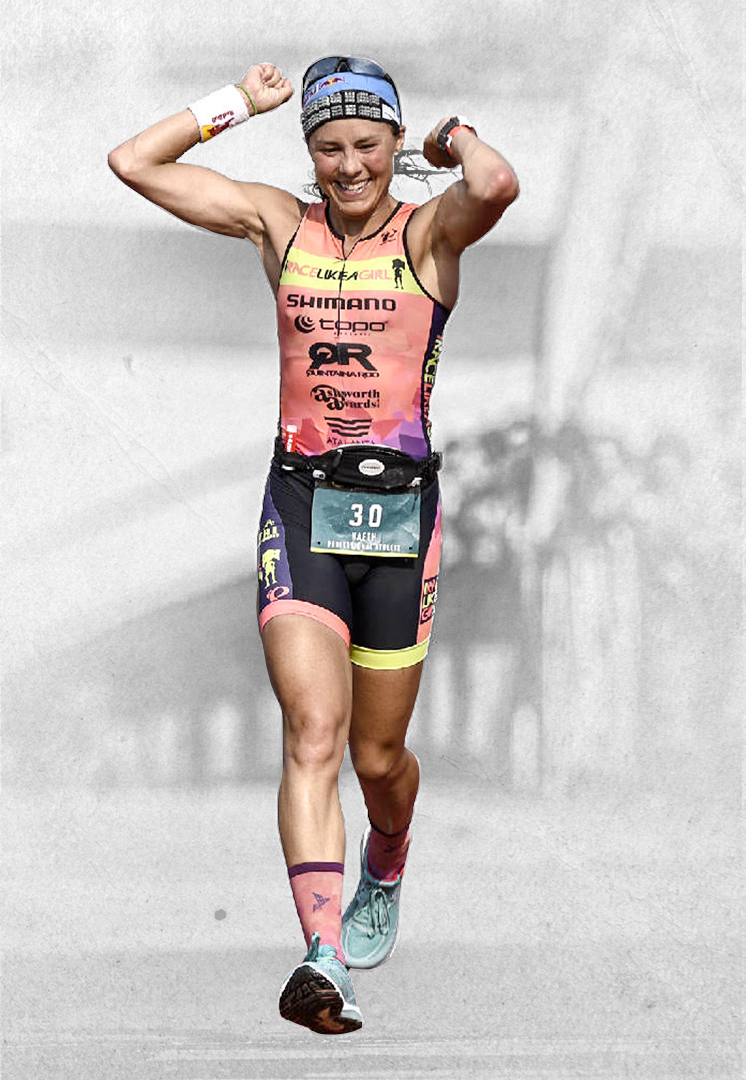Real Talk. Real Life. – Part III

Real Talk. Real Life. Part III
Welcome to the last installment of Real Talk. Real Life. If you missed them, read Part I where I discussed training during your menstrual cycle. In Part II of Real Talk. Real Life. I discussed nutrition during your cycle along with tips on how to fuel on race day.
In Real Talk. Real Life. – Part III, I discuss female hormones and what they do. I also provide you some insight into the use of oral contraceptives, pregnancy and menopause plus additional resources on the topic of the menstrual cycle.
What Do Our Hormones Do?
Changes in hormone levels change how we metabolize carbohydrates, fat, and protein, how we regulate heat, changes our blood plasma levels (fluid in our blood), among many other processes going on in the body. As a female we are affected by our changing estrogen and progesterone levels throughout our cycle. To keep things on a basic level we will focus on these (please see sources below for more in depth reading). When estrogen is high, women tend to utilize more fat as fuel, and conserve glycogen (form of carbohydrates). This can lead to more difficulty in higher intensity training. Progesterone also promotes the breakdown of protein. During the luteal phase, when progesterone is high, protein is critical for recovery.
Plasma volume (the volume of fluid in our blood) is related to our sodium and potassium levels (commonly known as electrolytes). When both hormones are high (again, the luteal phase), our blood volume drops creating thicker blood, which can lower performance. Progesterone increases sodium loss and also elevates our core temperature. This can affect your training/performance by causing earlier fatigue, decreased performance, and lower your heat tolerance. One hormone I haven’t talked about is prostaglandins. In the first days of your cycle, you may have loose stools because of its impacts of muscle stimulation during this time.
Missing your Period, the Use of Oral Contraceptives, Pregnancy and Menopause.
Having your period is a sign of healthy hormonal balance and should be worth noting to have. If you don’t get your period (either from the use of possible hormonal IUD, or other contraceptives, and/or low body fat percentage), it may be something to discuss with your doctor, and to consider for yourself. I know many professional women who get their cycle regularly (I’m one of them!) and some that struggle to get it without the use of contraceptives. A healthy woman has a period, period! If you’re not getting it (and you’re not using a hormonal IUD or other), it’s a sign that your stress may be too high or you’re not eating enough, and it should be a big RED FLAG. Lack of having a period can also be a sign of overtraining and hormonal imbalance. Don’t fight your period, use it as a sign of health and vitality.
Oral Contraceptives. There are side effects to these and I would definitely consult with your doctor if you’re using or considering using oral contraceptives and training. . Oral contraceptives increase your hormone levels and you can consider yourself always in a higher hormonal phase (the time in the cycle we generally don’t perform as well). I have personally used these in the past, and as mentioned, I also had an IUD. I didn’t like being on oral contraceptives because of this exact feeling. I felt my premenstrual symptoms increased and lasted longer. This may not be the case for everyone, but it is common. As much as I loved not having a period when I had the IUD (the hormonal ones generally take away your period because of the constant levels of progesterone); I found that after not being on it, I had more fire and vitality. It’s definitely something to ponder and consider the pros and cons of as you consult with a doctor you trust.
Many athletes have training and raced while pregnant or going through menopause. The best source I have found for details in this is Stacy Sims and Selene Yeager’s book: ROAR. Their book goes into detail on pregnancy and menopause and I know many women who have found it helpful.
I have heard some athletes using oral contraceptives to alter their cycle for a big competition they’re planning. I have not done this personally so I can’t comment. I would highly recommend seeing a doctor that is well-versed in doing so, if this is something you are considering.
Worthy Reads/Podcasts/Articles/Sources:

Angela Naeth’s experience includes being a 3x Ironman Champion, 36+ podium places at the 70.3 distance and 8th at the Ironman World Championships in 2018. Her educational background includes a Master’s degree in Physical Therapy and Bachelor’s in Health Sciences. Angela continues to pursue her career as a professional triathlete, is the founder of an all women’s endurance team and coach’s others to achieve their athletic pursuits. Her passion is to inspire and support Women In Sport.









